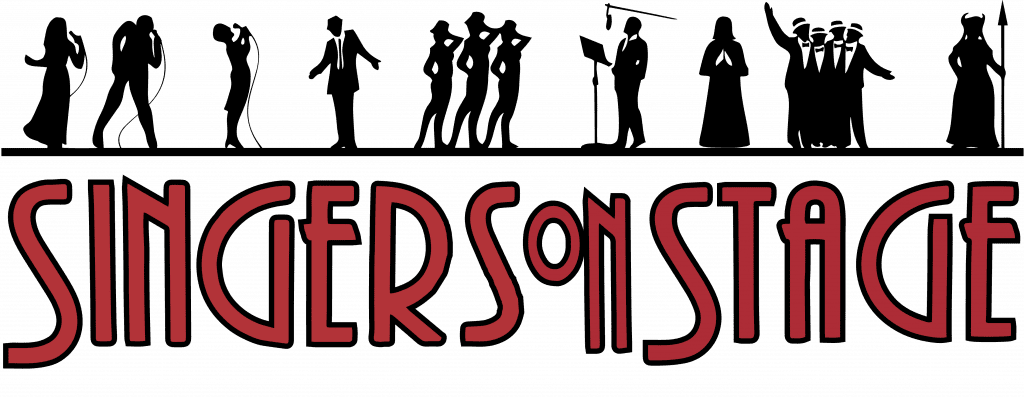This article is Part 1 of my 3-part series on Ear Training. Stay tuned for Part 2: A Call to Parents and Educators.
As a voice teacher, I often meet talented students with beautiful tone, boundless enthusiasm, and strong performance instincts. Yet one of the most common challenges I see—especially among younger singers—is difficulty with hearing pitch. Unlike generations past, many students today lack the early training grounds that naturally sharpened musical ears: church choirs, school choirs, piano lessons at home, and exposure to classical music.
The Decline of Choirs, Piano Lessons, and Classical Training
Not long ago, singing in a church choir or school choir was nearly universal. These ensembles offered something priceless: the chance to develop listening skills, match pitch with others, and learn music by immersion. In Los Angeles and many other cities, those choirs are vanishing. Meanwhile, piano lessons—once considered a staple of a well-rounded childhood—are increasingly rare. Families often don’t own a keyboard, much less a piano.
Equally concerning is the lack of exposure to classical music. Children once grew up hearing it in school, in church, and even in cartoons or films. Classical repertoire builds a singer’s sense of pitch because of its purity of line, harmonic richness, and technical demands. Without regular engagement with this tradition, students often lack the “ear training” that comes naturally when you are surrounded by complex, disciplined music-making.
This cultural shift means students arrive in the studio with less natural pitch experience than before. The role of the voice teacher has expanded beyond building technique and expression—we are often the first to teach students how to hear and reproduce intervals, how to follow a musical score, and how to practice consistently.
Why Reading Music Still Matters
Some students believe they can succeed in musical theatre or commercial music without being able to read music. And it’s true: a gifted singer who can learn quickly by ear may land roles and gigs. But here’s the reality: the singer who shows up, sight-reads confidently, and memorizes efficiently is far more marketable in the professional world.
A singer who can look at a sheet of music without ever having heard the song before—and sing it a cappella—will not only master pitch more easily, but will also be far more likely to succeed in a professional career. Even if a student has no plans to pursue music professionally, singing consistently off pitch will grate on the ears of any audience. Whether in a recital, a worship service, or a casual performance, singers who fail to sing in tune are unlikely to be invited back.
Classical training, in particular, forces a singer to combine pitch accuracy, rhythm, diction, and expression all at once. The rigor of this discipline not only builds a stronger voice, but also makes it easier to cross into musical theatre, jazz, or commercial singing later on. In fact, some of the most successful Broadway and recording artists began with a classical foundation.
Why Classical Music Still Matters for Today’s Singers
Builds the Ear: The harmonic complexity of Bach, Mozart, and Handel sharpens pitch accuracy like no other training.
Strengthens Technique: Classical breath support, resonance, and diction create a durable voice for all styles.
Transfers Easily: Once learned, classical skills make musical theatre, pop, and jazz easier to master.
Demands Musicianship: Classical repertoire requires reading skills, making singers faster learners and more marketable.
What Parents Can Do
If your child loves to sing, you can give them a significant advantage by investing in their pitch and musicianship training:
Encourage piano study. Even a beginner keyboard at home provides a foundation for pitch awareness and rhythm reading.
Seek out choir opportunities. While church and school choirs are less common, community ensembles, children’s choruses, and summer music camps still exist.
Expose them to classical music. Listening to Mozart, Bach, or Handel at home helps train the ear. Attending live concerts shows children what disciplined singing sounds like.
Support daily practice. Short, consistent exercises in pitch-matching and sight-singing strengthen skills faster than occasional long sessions.
Choose a comprehensive voice teacher. Look for someone who not only builds vocal technique but also emphasizes ear training, interval practice, and basic music theory.
The Voice Teacher’s Evolving Role
Today’s voice teachers wear many hats. We guide vocal technique, but we also introduce students to musicianship skills once taught primarily in choirs, piano studios, and classical training programs. This shift is both a challenge and an opportunity: it requires more patience and creativity, but it also allows us to nurture more complete artists—singers who can stand confidently in any rehearsal, on any stage.
Final Note to Parents
If your child dreams of Broadway, opera, or commercial music, encourage them to build both their ear and their musicianship. A great voice may open doors—but the ability to read, retain, and reproduce music will keep those doors open. And even for the casual singer, accurate pitch will make the difference between music that inspires and music that distracts.
Classical music may seem “old-fashioned” in today’s pop-driven culture, but its discipline remains the gold standard for training the ear, developing pitch accuracy, and preparing singers for any style of music. In a world where choirs and pianos are disappearing from homes, classical training offers a timeless foundation every singer deserves.
–Cherilyn Bacon
Coming Next in This Series
Part 2: A Call to Parents and Educators
In the next installment, I’ll explore what’s happening right here in Los Angeles—the disappearance of choirs in schools and churches, the decline of piano study, and why this is a critical call to action for parents and educators.
